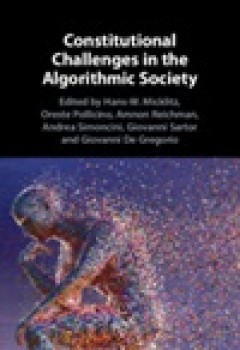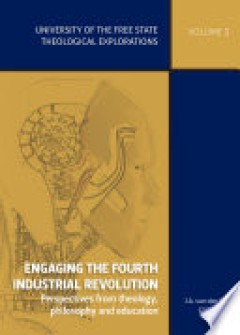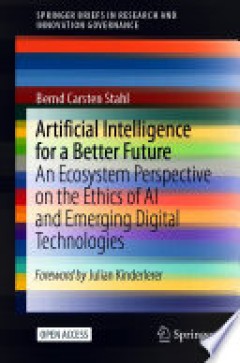Filter by
# Debug Box
/var/www/htdocs/pustaka-digital/lib/SearchEngine/SearchBiblioEngine.php:688 "Search Engine Debug 🔎 🪲"
Engine Type ⚙️: "SLiMS\SearchEngine\SearchBiblioEngine"
SQL ⚙️: array:2 [ "count" => "select count(sb.biblio_id) from search_biblio as sb where sb.opac_hide=0 and ((match (sb.topic) against (:subject in boolean mode)))" "query" => "select sb.biblio_id, sb.title, sb.author, sb.topic, sb.image, sb.isbn_issn, sb.publisher, sb.publish_place, sb.publish_year, sb.labels, sb.input_date, sb.edition, sb.collation, sb.series_title, sb.call_number from search_biblio as sb where sb.opac_hide=0 and ((match (sb.topic) against (:subject in boolean mode))) order by sb.last_update desc limit 10 offset 0" ]
Bind Value ⚒️: array:1 [ ":subject" => "'+\"Artificial intelligence\"'" ]

Cats, carpenters, and accountants: bibliographical foundations of information…
An expansive case for bibliography as infrastructure in information science. Cats, Carpenters, and Accountants argues that bibliography serves a foundational role within information science as infrastructure, and like all infrastructures, it needs and deserves attention. Wayne de Fremery's thoughtful provocation positions bibliography as a means to serve the many ends pursued by information …
- Edition
- -
- ISBN/ISSN
- 9780262377966
- Collation
- 279 p. : ill.
- Series Title
- History and foundations of information science
- Call Number
- 010 DEF c

The line: AI and the future of personhood
Chatbots like ChatGPT have challenged human exceptionalism: we are no longer the only beings capable of generating language and ideas fluently. But is ChatGPT conscious? Or is it merely engaging in sophisticated mimicry? And what happens in the future if the claims to consciousness are more credible? In The Line, James Boyle explores what these changes might do to our concept of personhood, to …
- Edition
- -
- ISBN/ISSN
- 9780262379670
- Collation
- 326 p., ill.
- Series Title
- -
- Call Number
- 126 BOY t

Constitutional challenges in the algorithmic society
Technologies have always led to turning points for social development. In the past, different technologies have opened the doors towards new phase of growth and change while influencing social values and principles. Algorithmic technologies fit within this framework. Although these technologies have positive effects for the entire society by increasing the capacity of individuals to exercise ri…
- Edition
- -
- ISBN/ISSN
- 9781108843126
- Collation
- x, 330 pages ; 24 cm
- Series Title
- -
- Call Number
- 342 MIC c

Generative AI in higher education: the ChatGPT effect
Chan and Colloton's book is one of the first to provide a comprehensive examination of the use and impact of ChatGPT and Generative AI (GenAI) in higher education. Since November 2022, every conversation in higher education has involved ChatGPT and its impact on all aspects of teaching and learning. The book explores the necessity of AI literacy tailored to professional contexts, assess the str…
- Edition
- -
- ISBN/ISSN
- 9781003459026
- Collation
- xxv, 260 pages; illustration
- Series Title
- -
- Call Number
- 371.9 CHA g

Methodological Investigations in Agent-Based Modelling : with Applications fo…
This Book Series is devoted to examining and solving the major methodological problems social sciences are facing. Take for example the gap between empirical and theoretical research, the explanatory power of models, the relevance of multilevel analysis, the weakness of cumulative knowledge, the role of ordinary knowledge in the research process, or the place which should be reserved to “…
- Edition
- -
- ISBN/ISSN
- 9783658172763
- Collation
- 247p
- Series Title
- -
- Call Number
- 300.1 SIL

Engaging the Fourth Industrial Revolution : perspectives from theology, philo…
The reality of a radically changing world is beyond dispute. The notion of the Fourth Industrial Revolution is a heuristic key for the world of emerging technologies such as artificial intelligence, nanotechnology, quantum computing, big data, the internet of things, and biotechnology. The discussion of emerging technologies and the Fourth Industrial Revolution highlights urgent questions about…
- Edition
- 5
- ISBN/ISSN
- 9781928424512
- Collation
- xvii, 252 p
- Series Title
- Theological Explorations, Volume 3
- Call Number
- 201.66 VAN e

Advances in Intelligent Data Analysis XVIII: 18th International Symposium on …
Missing data is a common occurrence in the time series domain, for instance due to faulty sensors, server downtime or patients not attending their scheduled appointments. One of the best methods to impute these missing values is Multiple Imputations by Chained Equations (MICE) which has the drawback that it can only model linear relationships among the variables in a multivariate time series. T…
- Edition
- 1
- ISBN/ISSN
- 9783030445843
- Collation
- XIV, 588p
- Series Title
- Lecture Notes in Computer Science
- Call Number
- 005.74 AID r

Artificial Intelligence in Oncology Drug Discovery and Development
There exists a profound conflict at the heart of oncology drug development. The efficiency of the drug development process is falling, leading to higher costs per approved drug, at the same time personalised medicine is limiting the target market of each new medicine. Even as the global economic burden of cancer increases, the current paradigm in drug development is unsustainable. In this book,…
- Edition
- -
- ISBN/ISSN
- 9781789846898
- Collation
- xiii, 143
- Series Title
- -
- Call Number
- 616.9940610724 CAS

Trusted artificial intelligence in manufacturing : a review of the emerging w…
The successful deployment of AI solutions in manufacturing environments hinges on their security, safety and reliability which becomes more challenging in settings where multiple AI systems (e.g., industrial robots, robotic cells, Deep Neural Networks (DNNs)) interact as atomic systems and with humans. To guarantee the safe and reliable operation of AI systems in the shopfloor, there is a need …
- Edition
- -
- ISBN/ISSN
- 9781680838763
- Collation
- xvi, 240 p
- Series Title
- -
- Call Number
- 670.28563 SOL

Artificial Intelligence for a Better Future : An Ecosystem Perspective on the…
This open access book proposes a novel approach to Artificial Intelligence (AI) ethics. AI offers many advantages: better and faster medical diagnoses, improved business processes and efficiency, and the automation of boring work. But undesirable and ethically problematic consequences are possible too: biases and discrimination, breaches of privacy and security, and societal distortions such as…
- Edition
- -
- ISBN/ISSN
- 9783030699789
- Collation
- 124 p
- Series Title
- SpringerBriefs in Research and Innovation Governance,
- Call Number
- 174.90063 STA
 Computer Science, Information & General Works
Computer Science, Information & General Works  Philosophy & Psychology
Philosophy & Psychology  Religion
Religion  Social Sciences
Social Sciences  Language
Language  Pure Science
Pure Science  Applied Sciences
Applied Sciences  Art & Recreation
Art & Recreation  Literature
Literature  History & Geography
History & Geography